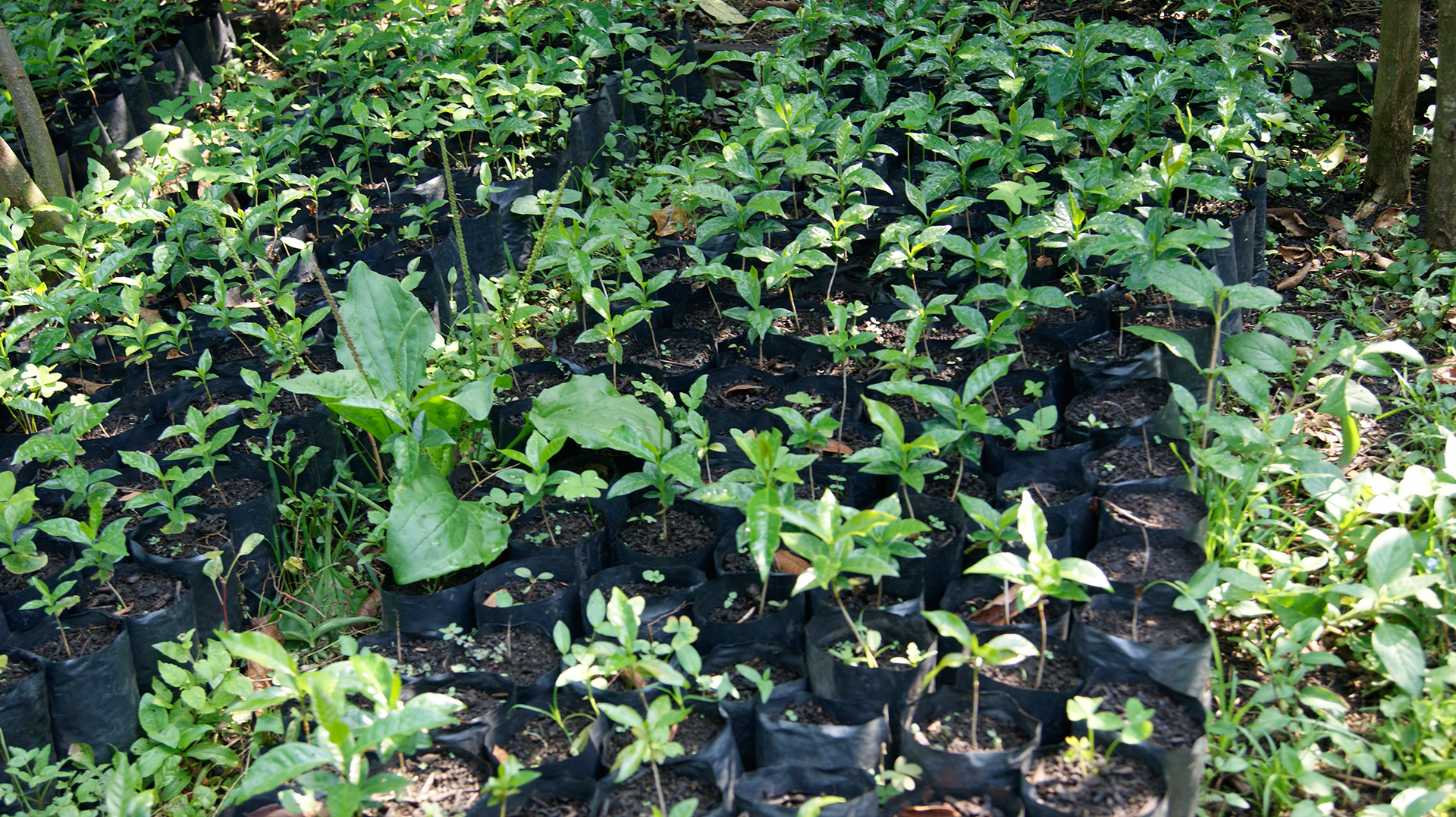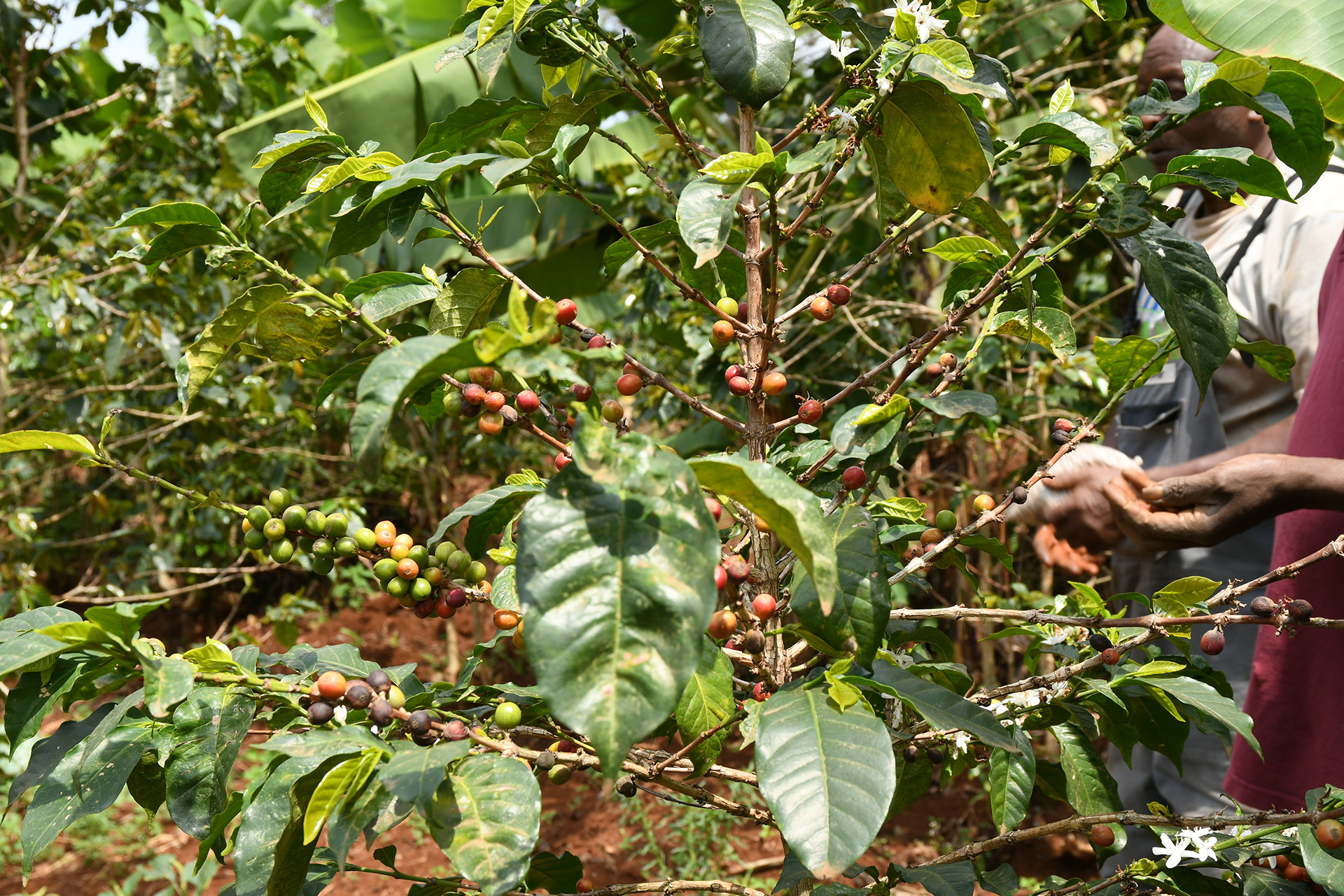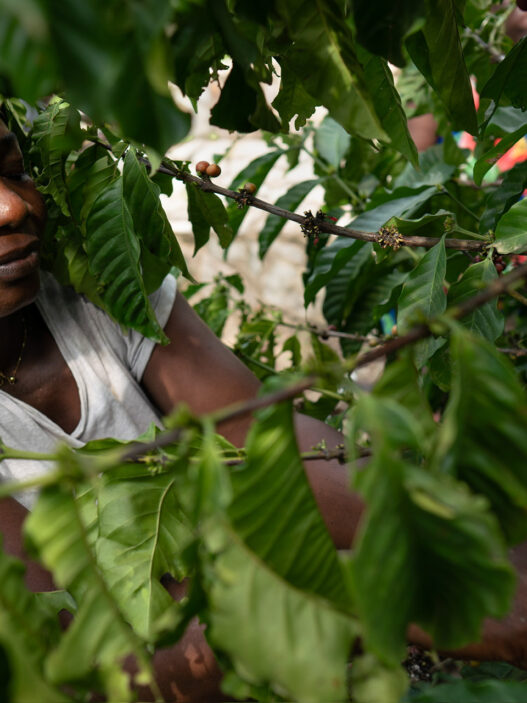Thick bushes of napier grass are visible from the roads that meander the prominent green hills of Kiambu in Kenya’s central region. Late one October morning in the village of Gakarara, and Dominic Waweru hiked up Waweru’s two-acre piece of land. His napier crop obscured what used to be his coffee farm. To his left was his brother’s farm with a few coffee bushes dotting the newly-weeded garden.
Muchai and Waweru reminisce how in their younger days, farmers in Gakarara picked thousands of kilos every day during the season. Waweru’s family used to weigh 3,000 kilos of coffee cherries per day. “This is what our parents educated us with,” he said. In its heydays, Gititu Farmers Cooperative Society had 42 coffee factories and thousands of farmers weighing thousands of kilos of coffee every year. It then started going downhill due to poor management and embezzlement of cooperatives. The last time he weighed his coffee at Gititu Cooperative was in 1997.
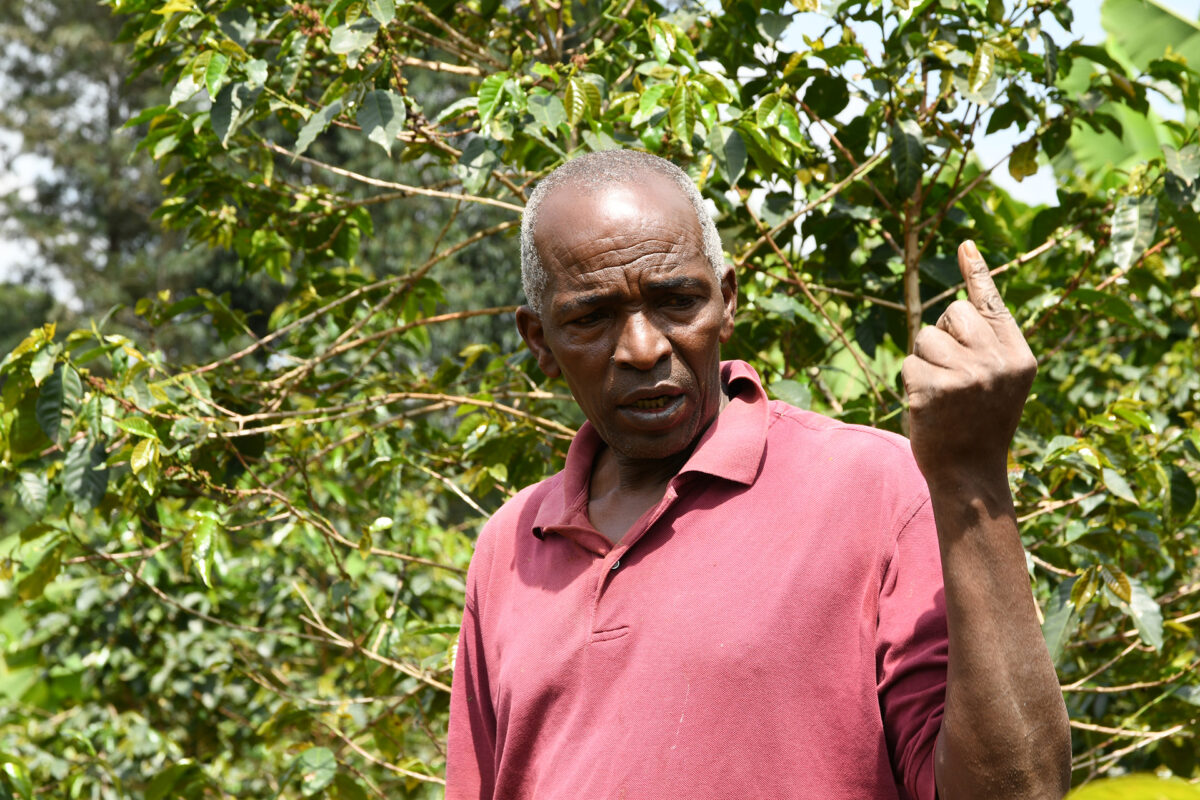
Unlike Waweru, Muchai, 68, has never stopped tending for his coffee bushes. He still picks coffee every season but doesn’t take them to his local cooperative society. He prefers to sell his coffee to brokers who buy from farmers. Like Waweru and thousands other farmers in Riuki, he lost money and confidence in the cooperative society. Many such cooperatives in Kiambu and other counties in Kenya’s central region have fallen.
Now, Kenya’s Deputy President Rigathi Gachagua is at the forefront in the latest push for coffee reforms, a task that has had casualties and caught the attention of many. Coffee marketing agents, millers, and exporters recently had their licenses revoked leading to confusion and losses in the industry only for some to be reinstated shortly after. As the coffee picking season starts and the reforms yet to be instituted, Kenya’s coffee industry is at a crossroads.
Early this year, Gachagua started the government’s campaign to reform the coffee sector with a conference in Meru in the country’s east. At the conference he called on entities he termed as cartels to leave the coffee sector. “I want to make an announcement to all those people who have been which have been living on the sweat of the coffee farmers that what you have gotten is enough. That going further you must get what is due to you, a little percentage. Ninety-five percent must go to the coffee farmer,” he said.
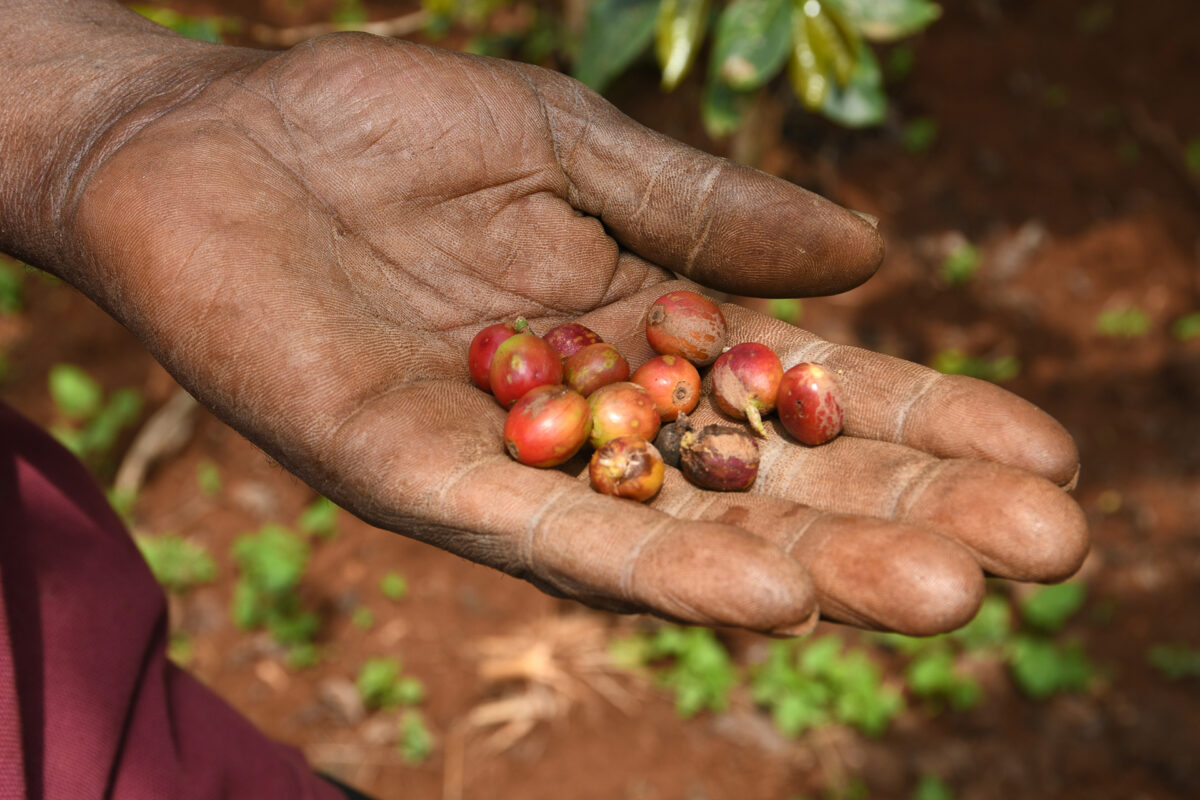
At the conference, he spoke of reforming the Nairobi Coffee Exchange, an entity which manages the coffee central auction in the country. In 2020, the government approved Kshs. 3 billion (US$29.5m) Cherry Advance Revolving Fund regulations to boost coffee farming in the country.
Following the Meru Conference, proposals by stakeholders were submitted to Gachagua in August at around the time that he had ordered the revocation of licenses of marketing agents and millers. This threw the sector into confusion. Without licenses, roasters and exporters couldn’t buy coffee neither could they export.
Stephen Vick, a manager at African Coffee Roasters said that the revocation affected their business, which involves importation of coffee from other countries in the region, roasting them in Kenya, and exporting them. After a few days, they had their license reinstated but others haven’t been lucky. “We got a call from Mombasa saying that these have been blocked in country, we can’t load these two containers. We couldn’t bring in two containers from Uganda that were in the Malaba border,” he said.
In Kenya, there are three major coffee trading companies i.e., Sucafina, Ecom, and NKG. The companies also owned mills and marketing agencies which were formed in line with government regulations, which demanded that a company can only engage in marketing, milling, or export if they had companies dedicated to that particular service alone. With the current reforms these companies have lost their licenses and were required to apply for license for only one service e.g., marketing only.
In the conference in May, Gachagua insisted on the same. “As it is today, it is unacceptable that the very people who are marketing are also millers and roasters. It cannot work. That is how the coffee farmer has been exploited,” he said.
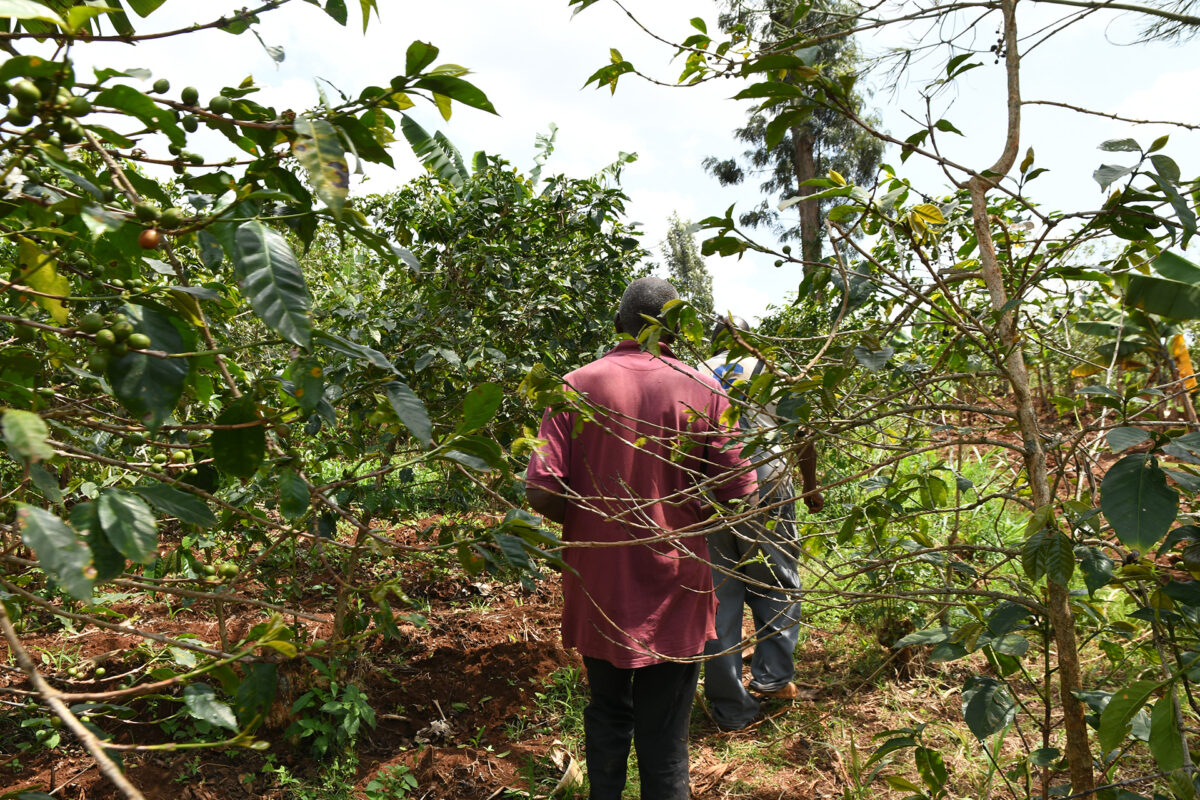
A manager in one of the major coffee marketing agencies whose company had its license suspended believes that the reforms should have been undertaken at the production level. Since 1987, coffee production in Kenya has dipped by about 70% to 40,000 metric tonnes in 2021. He said that a high cost of production of coffee in Kenya is making it uncompetitive. High tax regime on inputs, a labor movement that increases salaries frequently, inefficient wet processing of coffee, and a lack of improved coffee varieties, he said, are some of the things that should have been addressed instead.
The manager, who spoke to Sprudge on condition of anonymity said that none of the five private millers is currently licensed. Previously, the five millers milled 90% of the coffee in Kenya. The new regulations demand that cooperatives will take their coffee to the New Kenya Planters Cooperative Union (KPCU) for milling. KPCU hasn’t handled huge quantities of coffee in years. He believes that entrusting the New KPCU with milling all the coffee is ill-advised because even the farmers do not trust the New KPCU. The now state-owned organization had a membership of over 750,000 small scale farmers from over 300 co-operatives and about 2,000 estate farmers.
Gachagua said that the cooperative societies that represented farmers shouldn’t have been subdivided, to start with and the reforms should also target the cooperatives. Muchai is optimistic about the reforms. He looks forward to the revival of cooperatives so he can sell his coffee again without the fear of losing his money. According to him, the problem with his cooperative in Gititu is embezzlement of funds. He said that cooperative society officials didn’t remit farmers’ money leading to the collapse of the society.
As of August, the license revocation issue had affected the volumes being traded. Coffee mills who lost their licenses can’t sell over 100,000 bags of coffee they have in stores. In early October, a number of coffee mills announced that they would be laying off staff since they can’t operate. Those that did coffee marketing already laid off staff.
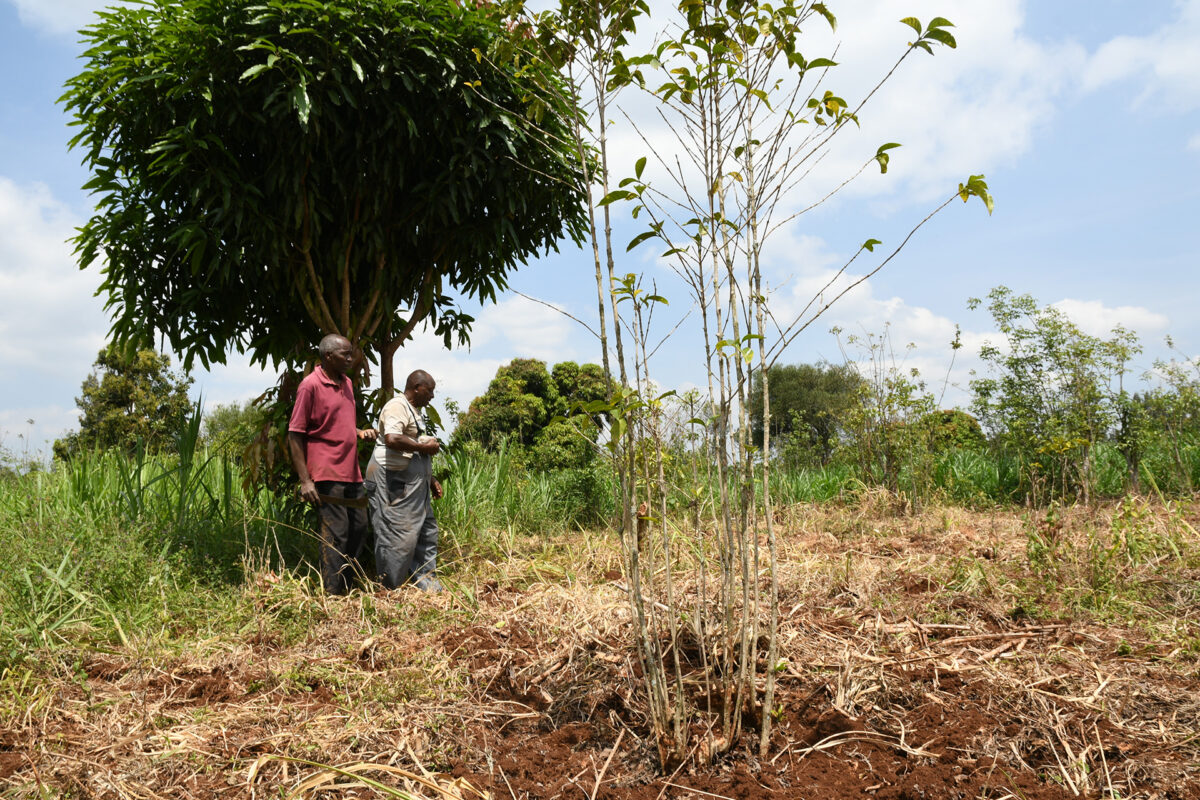
As coffee farmers and traders wait for the reforms to be instituted fully, the early crop has already been harvested and with private millers’ licenses suspended, a crisis may be in the offing. The suspension of licenses means that the chains have been broken occasioning huge losses. “What was pushing prices for Kenyan coffee is specialty coffee which are certified and certification applies to the entire value chain from the farmer, to the miller to the exporter. By channeling coffee to KPCU, that chain is broken and we now have a significant loss of value because those are the ones that were getting premium prices,” said the coffee marketing manager.
Anthony Langat is a freelance journalist based in Kenya whose work has been seen in Al Jazeera, the Guardian, the US News & World Report. Read more Anthony Langat for Sprudge.








